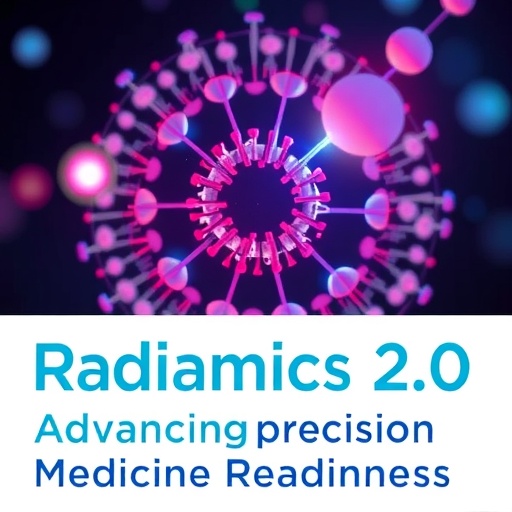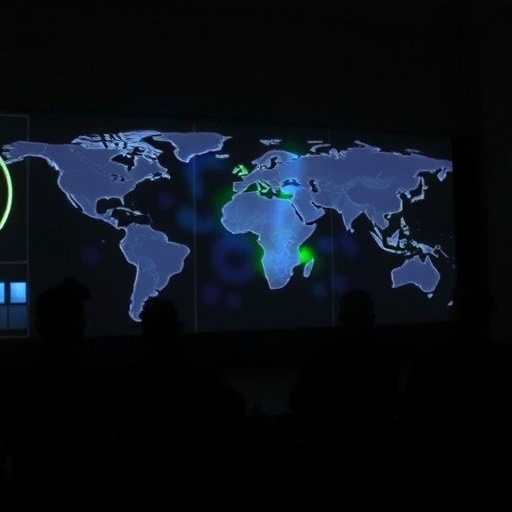
MIAMI, FLORIDA â As artificial intelligence continues to reshape multiple facets of healthcare, a new study tackles one of medicineâs most rapidly evolving frontiers: hematologic cancers. Published on September 3, 2025, in the peer-reviewed journal Future Science OA, this groundbreaking research evaluates the capabilitiesâand significant limitationsâof ChatGPT 3.5, an AI language model, in answering complex questions related to blood cancers. The studyâs findings illuminate how AI can and cannot be relied upon in clinical oncology, bringing into sharp focus the evolving intersection between advancing technology and patient care.
The burgeoning use of AI-powered chatbots like ChatGPT in medicine is driven by a growing demand from patients for instantaneous, accessible medical information. Yet, skepticism remains warranted, especially when AI dispenses advice on specialized and continually updating topics such as cancer treatment. Justin Taylor, M.D., a physician-scientist at the Sylvester Comprehensive Cancer Center, part of the University of Miami Miller School of Medicine and senior author of the study, emphasizes cautious optimism. He warns that while AI tools may assist in patient education, the intricacies of personalized cancer care require physician oversight and consultation to prevent misinformation.
The research focused on ChatGPT version 3.5, the widely accessible iteration available in mid-2024. Unlike the latest AI models built on more current datasets, ChatGPT 3.5âs training data were capped around 2021. This temporal limitation presents a critical barrier, especially for hematologic oncologyâa field in which therapeutic protocols evolve rapidly in response to ongoing clinical trials, novel drug approvals, and expanding molecular understanding of diseases such as leukemia, lymphoma, and multiple myeloma.
To rigorously evaluate performance, the researchers constructed ten representative questions that mimic those a patient might pose during various cancer care stages. Half the questions addressed broad, foundational concerns common at diagnosisâsuch as generalized chemotherapy side effects and their management strategies. The remaining five tackled more nuanced, emerging topics, including novel targeted agents like BCL-2 inhibitors, which hold promise in personalized hematologic therapeutics but remain part of active research pipelines.
Four hematology-oncology physicians conducted blinded assessments of the AI-generated answers, rating each response on a five-point scale from âstrongly disagreeâ to âstrongly agreeâ regarding accuracy, completeness, and relevance. Results revealed a clear trend: ChatGPT 3.5 scored moderately well on general questions, averaging 3.38âa neutral to somewhat positive accuracy range. However, when challenged with detailed queries surrounding newer therapies, its average rating dipped to 3.06, reflecting increased ambiguity and partial incompleteness.
Remarkably, none of the AIâs responses achieved a top score of five, highlighting the current insufficiency of ChatGPT 3.5 in providing fully authoritative or exhaustive explanations in such a specialized medical domain. This underscores the intrinsic challenge for large language models trained primarily on static datasets: they lack real-time integration with cutting-edge clinical research data and human expert consensus needed to navigate complex treatment landscapes.
The studyâs conclusions urge healthcare providers and patients alike to maintain a balanced view of AI-generated medical information. Dr. Taylor draws parallels with the early era of internet-driven patient education, when Google searches surged but quality control lagged. Over time, clinicians adapted by guiding patients toward vetted resources, fostering shared understanding rooted in credible evidence. He envisions a similar evolution in AI usage, where chatbots serve as initial educational tools that prepare patients for informed discussions rather than replace professional guidance.
This research notably fills a significant gap in the literature by concentrating on hematology-oncology, a subfield where treatment regimens must be meticulously tailored to individual genetic and molecular profiles. Unlike more static medical domains, blood cancer care integrates dynamic elements such as biomarker-driven drug selection and adaptive protocols based on patient response. These complexities render AIâs current abilities insufficient for independent clinical decision-making.
Beyond clinical accuracy, the study points to a promising future synergy between AI and medical education. At the University of Miamiâs Miller School of Medicine, AI applications are already easing physician workload by automating summary reports and streamlining documentation. Educational initiatives include elective courses focused on AIâs role in medicine and ethics training tailored to diverse linguistic populations, indicating a holistic institutional commitment to responsibly integrating AI technology.
The addition of AI-powered diagnostic tools, such as systems designed for brain tumor identification through optical imaging and machine learning algorithms predicting outcomes for multiple myeloma, exemplifies the expanding frontier of AI in oncology. As these technologies mature, they hold the potential to revolutionize both diagnostic precision and therapeutic decision support, complementing rather than supplanting human expertise.
Looking ahead, Dr. Taylor and his colleagues plan to revisit AI accuracy in hematologic oncology with newer iterations of ChatGPT and related large language models, anticipating improvements reflecting expanded data input and algorithmic refinement. Nevertheless, the core premise remains: AIâs role should be as an augmentative aid, enhancing patient engagement and facilitating physician-patient communication rather than acting as a standalone source of medical advice.
This landmark study serves as a timely reminder of AIâs dual nature in healthcareâbrimming with transformative promise while still encumbered by fundamental limitations. It spotlights the imperative for continuous physician oversight and evidence-based validation as AI tools become woven into the fabric of cancer care. In this critical balance lies the pathway toward harnessing AIâs power without compromising the nuance and compassion essential to effective medicine.
Subject of Research: Hematologic cancers; AI application in oncology; evaluation of ChatGPT 3.5 in medical information accuracy
Article Title: ChatGPTâs Role in the Rapidly Evolving Hematologic Cancer Landscape
News Publication Date: September 3, 2025
Web References: https://doi.org/10.1080/20565623.2025.2546259
Image Credits: Photo by Sylvester Comprehensive Cancer Center
Tags: AI in healthcareartificial intelligence in blood cancer treatmentchatbot accuracy in cancer researchChatGPT limitations in oncologyclinical implications of AI in oncologyethical considerations of AI in medicineevaluating AI in medical advicefuture of AI in healthcarehematologic cancers and AIpatient education through AIpersonalized cancer care and technologyreliance on AI for medical information




